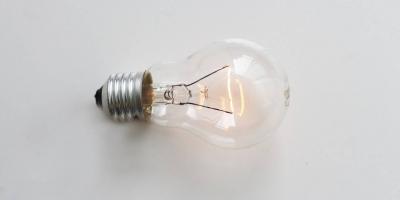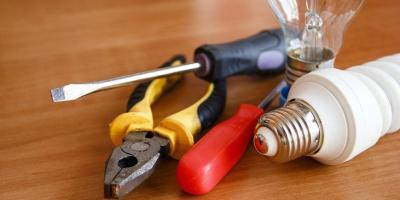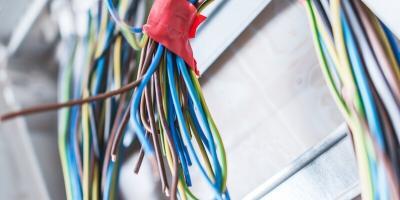Did you know that over 75% of our electricity generation comes from coal?
It is hard to imagine life without electricity. However, as homeowners, we tend to be oblivious to various factors related to electricity. Every homeowner should be equipped with basic electrical knowledge and various safety tips regarding their home.
Did you know that most home fires are caused by electrical malfunction or failure. Electrical fires result in financial losses, sentimental value damages, serious injuries and even death.
To avoid such catastrophes, here are three basic electrical knowledge every Australian homeowner should know.
1) Understand how electricity enters your home
Electricity can enter into a home either from a power line on the streets or via an underground line. It is then connected through a service entrance in the main electrical switch. This often has an ON/OFF switch. The main power supply is usually located outside of the home, preferably a basement or garage. This is where the power is transmitted to individual circuits in a home.
In case you’re moving into a new house, it is paramount to consider the location of the main power supply. This is vital in case of an emergency. Besides, whenever you want to perform any electrical work at home, the main power switch allows you to cut off the power for safety.
2) Know what short-circuiting is
When a wire is open or exposed to a metal, it can cause an electrical short-circuiting. Electric power is transmitted from one room to the other from the main circuit board or a circuit breaker. Each outlet is protected by circuit breakers and fuses.
Arc-fault circuit-interrupters are usually installed to protect against accidental electrical discharge that can happen due to damaged electrical wires or loose connections. If a shortage occurs, the circuit breaker shuts or trips off thus stopping the transmission of electric power.
This is why it is advisable to check the circuit breaker in case you find out that a particular appliance isn’t working or stops working instantly. If a circuit breaker trips, you can reset it manually by switching it off then on.
Circuit breakers don’t necessarily protect against ground electric faults. Ground Fault Circuit Interrupters (GFCIs) are intended to prevent electrocution resulting from ground faults. They often trip whenever there’s a ground fault.
3) Be careful with your outlets
Power outlets have a specified amount of energy they output. Therefore, it is very risky to plug in several high-wattage appliances in a single outlet that exceeds the power it disseminates. In case you want to use several appliances, consider installing a different outlet to ease the strain on the current outlet. When you discover that an outlet feels warm, then it may signify a poor or loose connection. In such a case, the circuit breaker can flip from time to time. Identifying where the connection is bad in your home can be a challenging task. You should consider calling an experienced electrician for any electrical fault inspection.
If you’re using an extension cord, then be sure to use the right size. Too long or too thin extension cord can damage an electrical appliance. Additionally, never overload an extension as it can cause shock or fire hazards.
Electricity in a home is vital but can also be very dangerous. As a homeowner, it is great to understand some basics about the functionality and safety of electricity. If you find that you can’t handle electrical work, then consider hiring an experienced electrician. Gordon’s Powers is a Sydney-based electrician that can help you with any type of electrical work.










